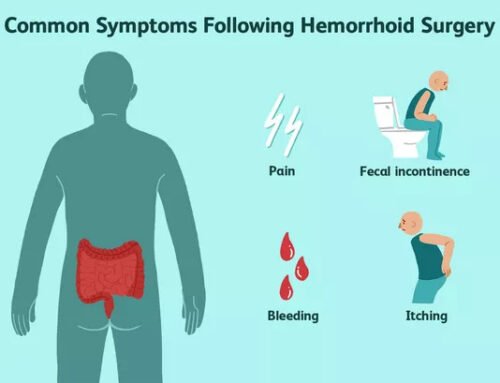
Disadvantages of surgery in Fistulas.
Antibiotics are ineffective in treating anal fistula. Surgery to restore Normalcy in anorectal tissues is the sole option. The goal of the surgery is to either shut or remove the fistula channel. Anal fistula can be treated surgically many different methods. As a result, we need to weigh all therapies, weather conventional or alternative and select one with minimum disadvantages and high success rate. Failure to select the appropriate treatment strategy can result in undesirable outcomes.
The two main conventional procedures adopted are fistulectomy and fistulotomy. Fibronglue, flap surgery etc are other options.
The following are 10 negative consequences of a fistula surgery or side effects of fistula operation.
- Long incision to treat fistula :
The surgeon makes a lengthy incision to cut open the fistula tract and remove infectious material in open surgery for fistula. The wound is laid open and has to be left to heal from inside out. It cannot be sutured. Hence is very painful and time consuming. Regular and repeated dressings are very painful and uncomfortable. - Incontinence of the bowels :
The anal sphincter muscles may be damaged as a result of anal fistula surgery. These sphincter muscles tighten around the anus in order to control bowel motions. When muscles are damaged, their strength is impaired. Incontinence results as a result of this. - Infection :
The risk of infection is always present in any surgery, more so in a fistula surgery because of its site. This can be covere/ minimised by using
antibiotics. However it becomes necessary to use antibiotics for a very very long period until the wound is healed. And inspite of that the site of the diseases itself makes it prone to getting infected. However, instead of cutting and laying open the entire fistulae if we have used the combination technique of cutting the outer part with Laser technology and using the kshar sutra for the part involving the spinchter
muscles (muscles controlling the passage of stool), the kshar Sutra keeps on cleaning and cutting the remaining track reducing the necessity of using antibiotics. - Recurrence of a fistula :
There is a substantial risk of recurrence after most types of fistula surgery except the kshar sootra/ kshar Sutra therapy. A recurrence of the fistula is an accepted fact in modern surgery. Special in high anal fistulas and in complex fistulas with multiple tracks. When kshar Sutra is used the risk of recurrence is minimized because the kshar Sutra, with the help of the herbs coated on it, keeps on continuesly cleaning, cutting and gradually healing the part. Combining the laser and kshar Sutra methods brings down the recurrence rate to less than 1 percent. - Bowel Blockage or obstruction :
This is a rare complication of surgery. However there are no chances of this in the kshar Sutra, laser technique mentioned earlier. - Gas Incontinence:
An involuntary muscle is part of the sphincter and is responsible for preventing gas and liquid from passing out of the rectum. A person’s ability to control the passage of gas may be compromised if this sphincter muscle is disrupted during a fistulotomy. - Prolonged Hospitalisation :
In the case of open surgery, the patient may be required to stay for two to ten days in a hospital. The doctors examine the patient’s degree of pain, bowel motions and other factors determines whether or not he or she is capable of standing on his or her own. It takes some time to do this. Wound (surgical wound) infection risk, and other consequences are all higher in open surgery. - Long Recovery Time:
After open surgery for a fistula, frequent after effects include soreness and trouble sitting. The post surgery recovery time is long and If the patient does not follow the post-surgery instructions, the recovery time may be further extended. - Post Surgery Bleeding:
Post surgery bleeding is a common complication if bigger vessels are cut during the surgery As a result, aftercare is equally crucial and must be monitored by medical personnels. After care is becomes a major issue and in many cases it becomes mendatory to visit a doctor every day or on alternate days causing inconvenience to the patient. - Post surgical pain :
Post surgical pain is a major issue.
The site and the size of the wound (usually very large) causes sever pain for a prolonged period. Analgesics/ pain killers may have to be used for a longer period. In laser technique, the cutting is very precise and hence it causes less pain. While using the combined technique of laser and kshar Sutra we take the best of both and hence pain is minimised . - Scarring
The lardge wound not only leaves ugly scars but also deforms the site.
Seatone
In all fistula surgeries (open surgery) a thread/ seatone is left in the part of the track which penitrates the spincter muscles. This seatone stays for life time. It’s permanent existence causes irritation and other problems.
In spite of all these complication, one does not have to learn to live with an anal fistula as is often implied by the doctors specially when better options like kshr Sutra/ kshar sootra are available in India.
The diagnosis, treatment, and recovery from a fistula can be time-consuming and frustrating. There is, however, a lot of aid out there for anyone who is going through this.
Anyone who has a fistula should consult a doctor or healthcare team to determine the best treatment option. In high anal and complex fistulas and in all fistulas where the anal sphincters are involved, the option of kshar Sutra and partial fistulectomy with kshar sutra is the best option possible. Surgical units offering the kshar Sutra options may be contacted for further guidence.




Leave A Comment